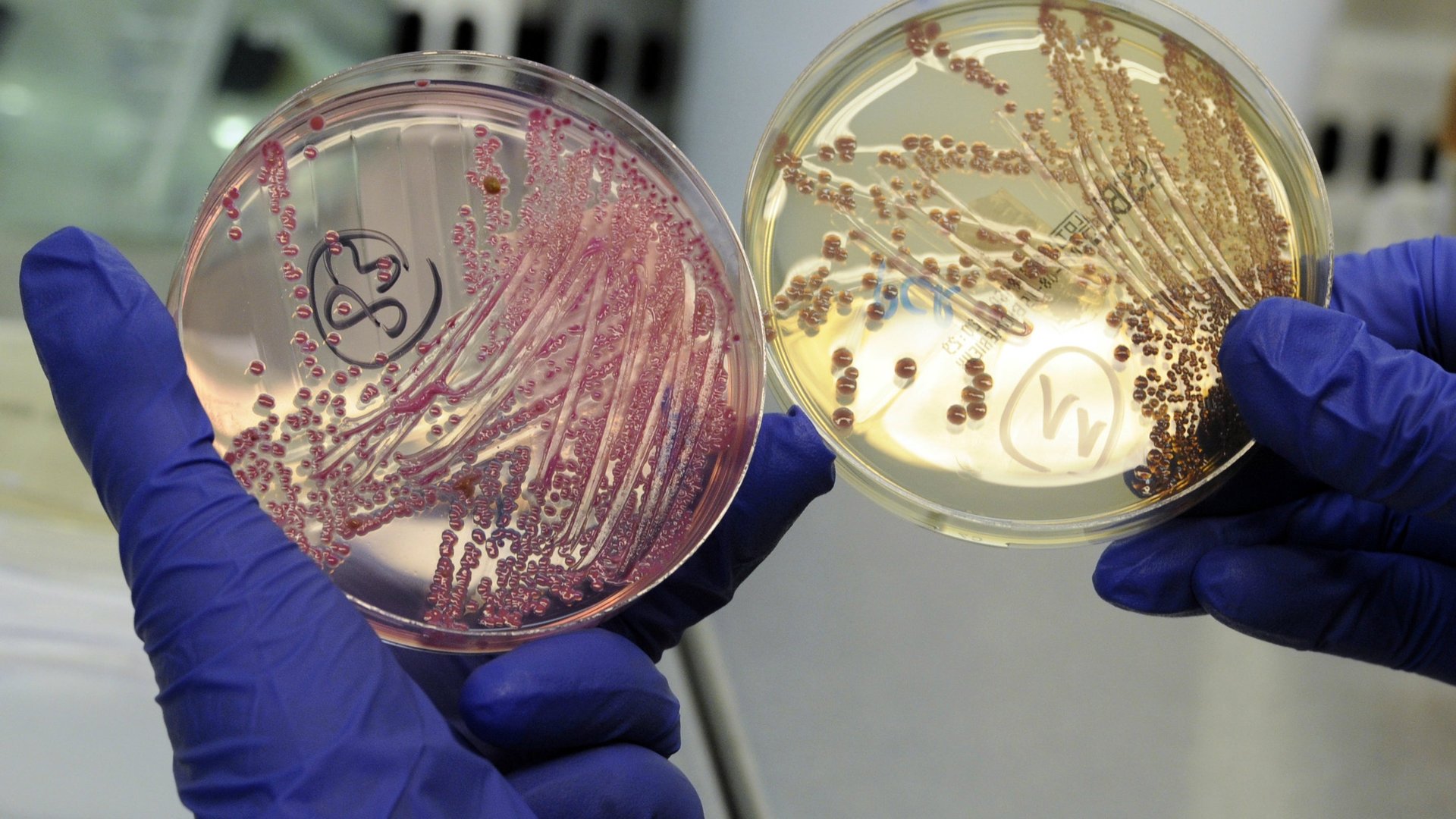The UN just categorized antibiotics in the food system as a crisis on par with AIDS and Ebola
For the fourth time in its history, the United Nations has elevated a health issue to crisis level.


For the fourth time in its history, the United Nations has elevated a health issue to crisis level.
The UN General Assembly held a high-level meeting earlier this week (Sept. 21) to address how antibiotics have become less useful when treating human illnesses caused by bacteria. In its 70 year history the General Assembly has called similar meetings to discuss HIV, the rise of non-communicable diseases such as heart disease, and Ebola.
By pushing antibiotic resistance front-and-center as a global problem, the international body has acknowledged that some of the miracles of modern medicine—including the invention of penicillin and tetracyclines—are at risk of becoming ineffective. Already the US Centers for Disease Control and Prevention estimates that 23,000 people die in the US each year as a direct result of antibiotic resistance. Some of those deaths were from illnesses once easily treated with the drugs, including MRSA and some E. coli infections.
At the core of the crisis sits animal agriculture, which includes the some 9 billion food animals slaughtered in the US each year. For years, food companies and farmers have used antibiotics not only to treat sick animals, but also to feed them a steady diet of the drugs to prevent illnesses.
Public health advocacy groups have pushed on the federal government to crack down on how farmers use drugs, but the government has been slow to act in a meaningful way. Food companies are not especially transparent about what drugs are being used on different species and how they are being used, and the government mandates little be made public.
Some of the biggest pressure on farm practice changes comes from corporate America, which has responded to consumer demand for foods from animals not treated with antibiotics. A new report published this week (Sept. 20) by the Natural Resources Defense Council and a coalition of other advocacy groups shows that in just the last year, the number of US fast food chains that have adopted supply chain policies aimed at reducing the on-farm use of antibiotics for the meat products they sell has doubled.
The NRDC each year rates the 25 biggest fast food chains on their antibiotic policies and transparency. This year’s report shows several mammoth restaurant chains successfully implemented new policies to force their meat producers to change how they use on-farm drugs, including McDonald’s, Wendy’s, Subway, and Chick-fil-A. It also highlights companies that continue to maintain abysmal records, including Dunkin’ Donuts, KFC, and Olive Garden—all three received “F” grades, the lowest. Some of the other findings in the report include:
- Subway, Chick-fil-A, McDonald’s, Wendy’s, and Taco Bell are on track to prohibit the routine use of antibiotics in their chicken supply. The NRDC said those companies have made real progress in implementing that policy.
- Perdue Farms, Tyson Foods, and Foster Farms have committed to eliminate routine antibiotics use across all of their chicken farms. Pilgrim’s Pride remains a straggler.
- KFC is a major chicken buyer but has yet to commit to a more responsible policy.
Currently there’s a global patchwork of antibiotic use enforcement, which means farm animal producers operate differently in different countries. That makes it difficult for restaurants such as McDonald’s and others to commit to eliminating antibiotics from meat sources in places with poor antibiotic track records, such as China, the world’s second largest economy and a key area for growth.
There have been some signs of hope in China. In October 2015, the Chinese government instituted a strict new food safety law, which included more oversight over production practices (though nothing specific to antibiotics has been discussed yet). And on Sept. 18, the country announced it would spend $450 billion by 2020 to modernize its agricultural sector, according to Reuters.
The UN General Assembly’s 193 member states this week signed a declaration committing to the fight against resistance, though the details have yet to be hashed out.
Health advocates, including at the Pew Charitable Trusts, have said they expect many countries will look to the US to take the lead in determining how best to best tackle resistance. The progress made by US food chains is a start; the key will be applying those same standards to sources abroad.
“It can’t be the end of the discussion,” said Gail Hansen, a veterinarian and expert in antibiotic resistance, referring to the pressure put on the US supply chain by fast-food giants. “Companies should have the social responsibility to do what they can in other countries.”